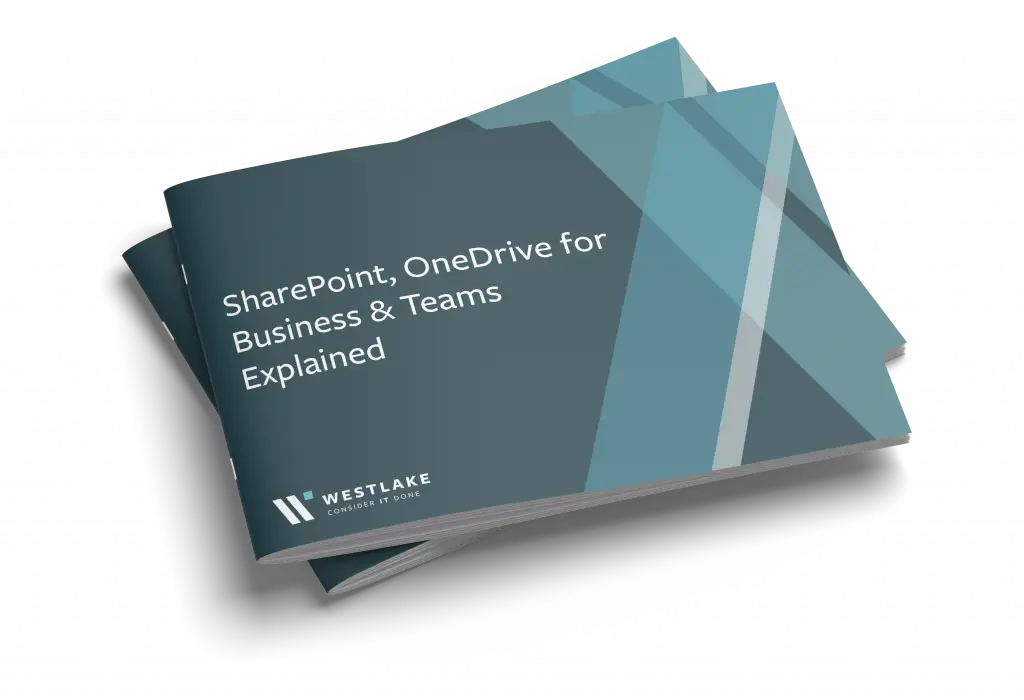How organisations store and share data has been transformed by tools like SharePoint, OneDrive and Teams.
The extraordinary working conditions imposed on all businesses during the Covid-19 pandemic has fast forwarded society’s move towards remote working as the new normal.
To work anywhere, people must be able to access company files and folders easily and securely. SharePoint provides that functionality, replacing VPN with a far more secure way of accessing data. All you need is an Internet connection.
But SharePoint is far more than just a file repository and Teams is more than just a chat and meetings tool. How businesses choose to configure SharePoint and OneDrive, the user experience they want to create and how they integrate Teams into that mix is a strategic business decision.
MD, Chris Apperley explains, “We decided to produce a How to Guide on SharePoint, OneDrive and Teams because we find many businesses are unaware of the ramifications of how they setup SharePoint and Teams. We always advise our clients to choose a setup that meets their business needs first and foremost. SharePoint and Teams may appear easy to set up and use but require administration and governance so that data is stored and accessed appropriately.”
Download Your Free eBook
Westlake IT have produced their free eBook to enable businesses to make informed decisions about how they store, access, and share data. Click the link below to download your copy of SharePoint, OneDrive and Teams Explained.
Alternatively, contact Westlake IT for an honest, detailed discussion about your IT support needs. Email [email protected], or call us on 02392007850.





